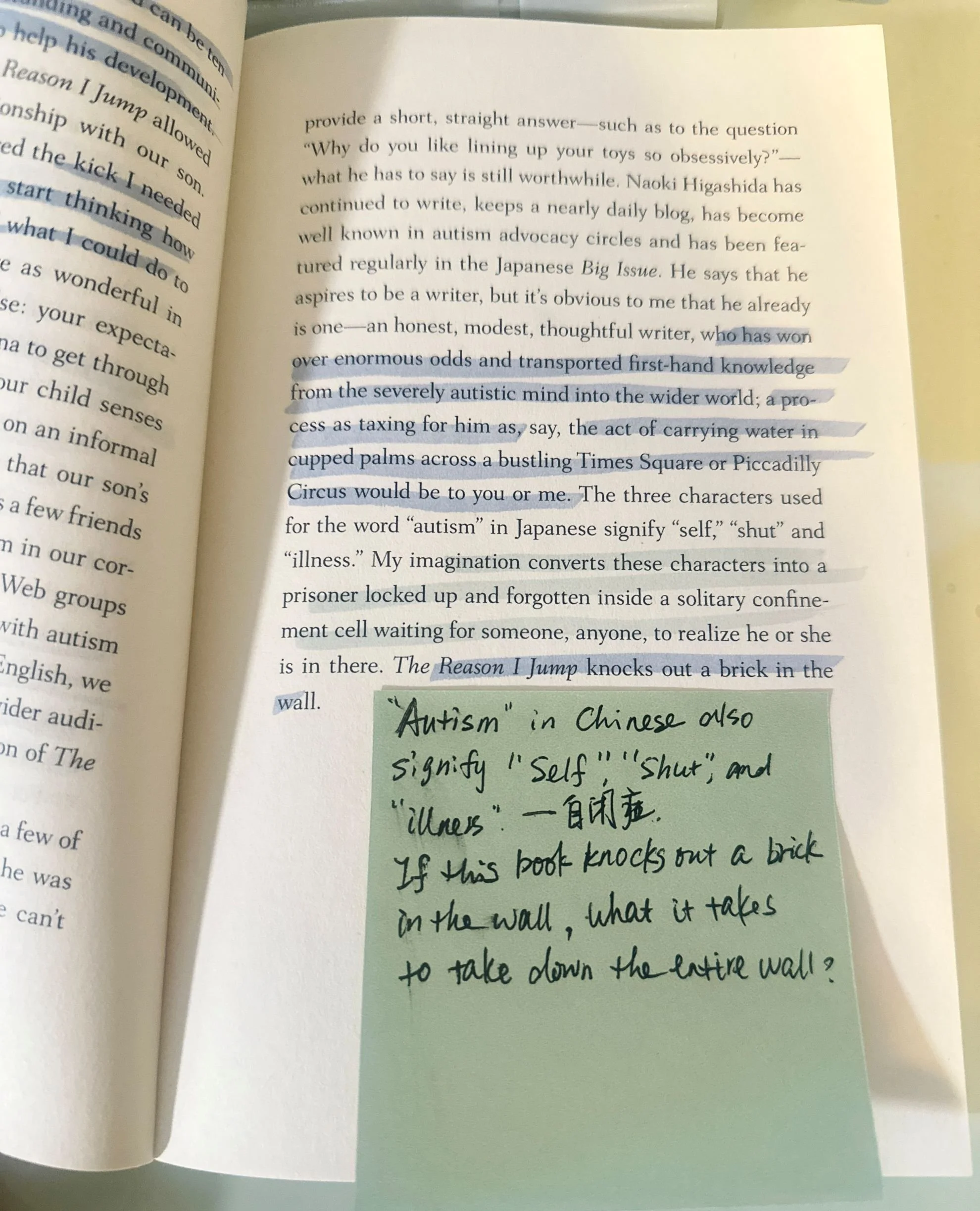Amazing
Spirit Island, Maligne Lake, Jasper National Park, Canada
Just like Spirit Island, children on the spectrum may appear distant or hard to reach - but those who take the time to journey toward them, will find something rare, resilient, and quietly amazing.
Sometimes, in our desperation to help our neurodivergent children, we focus so much on doing - therapy sessions, developmental milestones, social “norms” - that we forget the most essential thing:
To see them. To be with them. To love them not as projects to fix, but as people to know.
Reading The Reason I Jump cracked something open in me. Written by Naoki Higashida, a 13-year-old non-speaking autistic boy, this book isn’t just a collection of insights - it’s a voice from the inside. One of the rare moments where we’re not hearing about autism through an expert or diagnosis code, but through the words of someone living it.
“Just by looking at nature, I feel as if I'm being swallowed up into it, and in that moment I get the sensation that my body's now a speck, a speck from long before I was born, a speck that is melting into nature herself. This sensation is so amazing that I forget that I'm a human being, and one with special needs to boot.”
This sentence stopped me in my tracks. How often do we assume that silence means absence? That not speaking means not understanding? But Naoki reminds us: there’s an entire universe inside these children - full of feeling, longing, and awareness.
The problem isn't their lack of communication.
It's often our lack of listening.
They can feel the same warmth of light, the same softness of the breeze. Like us, they are human beings - gifts from nature.
I used to spend so much of energy asking: What’s wrong?
But now I wonder: What’s hidden?
Naoki explains that many of his behaviors - jumping, hand-flapping, sudden movements - are his way of connecting with the world. His way of saying, “I’m here.”
Those tiny, invisible movements we overlook are how they say hello to the world.
This book invites us to step out of the race for progress and instead offer presence.
To stop trying to fix - and start trying to understand.
Naoki’s words don’t ask for pity. They offer something far more powerful: awe.
A humility that whispers: Maybe my child isn’t broken. Maybe they’re even more resourceful than I am in some ways. Maybe I just haven’t yet learned their language. They are amazing, just as they are.
Image: My copy of The Reason I Jump
In the introduction, David Mitchell - who translated the book - writes that the Japanese characters for “autism” signify “self,” “shut,” and “illness.” He imagines autistic individuals as prisoners locked up and forgotten inside a solitary confinement cell, waiting for someone, anyone, to realize they’re in there.
If this book knocks out a brick in the wall… what would it take to bring the whole wall down?





